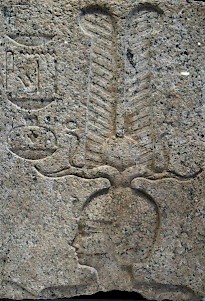Diodorus on the end of the Argeads

In 311, the Diadochi concluded a peace treaty. Ptolemy and Lysimachus were confirmed in their territories, Egypt and Thrace; Cassander and Antigonus Monophthalmus remained supreme commanders of the Macedonian forces in Europe and Asia; the Greek towns were recognized by all parties as "free and autonomous" (although Cassander would keep garrisons at several places); and it was agreed that the boy king Alexander IV, son of Alexander the Great and Roxane, would become sole ruler of the entire empire when he came of age, in 305. The result was, as coukld be expected, that the royals were killed as soon as possible.
Diodorus of Sicily tells the story in his World History (19.105.1-4); the translation was made by M.M. Austin.
The end of the Argeads
[19.105.1] In the archonship of Simonides at Athens,note Cassander, Ptolemy and Lysimachus put an end to the war against Antigonus and concluded a treaty. It was specified in it that Cassander should be general of Europe until Alexander, Roxane's son, should come of age, that Lysimachus should be master of Thrace and Ptolemy master of Egypt and the neighboring cities in Libya and Arabia, that Antigonus should command the whole of Asia, while the Greeks should be autonomous. Nevertheless they failed to abide by this agreement, and each of them put forward fair pretexts and sought to increase his power.
[19.105.2] Cassander saw that Roxane's son Alexander was growing up and that there were some who were spreading the word in Macedonia that one ought to release the boy from custody and hand over to him his father's kingdom. Afraid for his own safety, he instructed Glaucias, who was in charge of the boy's custody, to assassinate Roxane and the king and conceal their bodies, and not to report the deed to any of the others.
[19.105.3] Glaucias carried out the orders, and this freed Cassander, Lysimachus, Ptolemy and even Antigonus from anticipated fears about the king.
[19.105.4] For now that there was no one to take over the empire, those who ruled peoples or cities could each entertain hopes of kingship and controlled henceforward the territory under their power like kingdoms that had been conquered in war.